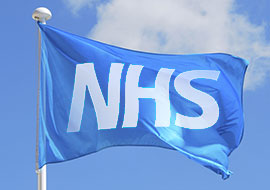 The stirring speeches, the resounding applause, the calls to action, the shouts of support. Talk nhs: a public debate on the past, present and future of the nhs (RSM London, Saturday 19th August) promises to be one of the most motivating and well-attended public meetings on the plight of the NHS for some time. The calibre of the speakers alone should tell you that.
The stirring speeches, the resounding applause, the calls to action, the shouts of support. Talk nhs: a public debate on the past, present and future of the nhs (RSM London, Saturday 19th August) promises to be one of the most motivating and well-attended public meetings on the plight of the NHS for some time. The calibre of the speakers alone should tell you that.
But, after campaigning for a while, you start to hear the doubts: ‘haven’t we done all this before?’ ‘it’s the same old, same old’, ‘we need to be doing, not listening; marching, not sitting’. And these reservations are right – but also wrong.
Of course you’re going to ‘hear the same old’ if you campaign for long enough. There is a compelling reason for that: for most people, going about their lives, the plight of the NHS is not the dire crisis we few (compared with the whole population) know it to be. It becomes one only when their hospital A&E closes overnight; or they are facing a terrible choice of suffer in pain or pay up privately, as more and more CCGs save money by creating more and more barriers to elective surgery. Or they suddenly find, in a situation where no one wants to realise it for the first time, that it is their loved one in the back of the ambulance as it faces a 50 mile journey to save their life, because ‘centralisation’ in their area’s STP doesn’t feel the pain. Whereupon they become the most ardent, furious, committed NHS campaigner any of us could be. When it is too late, in other words.
To get people out of that imposed ignorance – and it is deliberately engineered – and bring them to the point where they demand change politically is the main focus of what we do. They have to learn. As any teacher will tell you, repetition is nearly always required. ‘The same old, same old’ for you, the committed campaigner, is a shocking revelation to the newcomer.
It’s also a bit unfair to regard an event as simple repetition. This one will be far from it. The idea of a ‘big conference’ in London aimed at the public has been planned for several years, and what matters above all are the speakers and what they have to say. This line-up is a crowd-puller. Not just the converted either: it promises to reach many new people and bring them in.
Then there’s the media. Ah, the media. The darling guardian of a thriving democracy, challenging the powerful and protecting the vulnerable with the actinic glare of free speech? Or the pocketed sooth-sayer of the wealthy and powerful, suppressing awkward questions to protect its masters and vilifying the vulnerable with stereotyped untruths? Both, I would say. Yes, many media organisations are now ‘all about the bloody shopping’ (to quote Andrew Marr) and the opprobrium dumped on anyone who presents a threat or even a counter-opinion large enough to the right could not be further from the lofty ideal of ‘defending freedom through the press’. But many journalists – I would dare to suggest most – do hold those ideals to be worth protecting. And they are actually human (well, so far; Google does have ideas…).
Which means many journalists will listen. They will try to be even handed, even when their employers manifestly nearly always are not. They are worth telling our story to. The reach of the media remains powerful; most people believe some if not most of what the media tell them. They influence opinion on a politically massive scale – that’s why the rich and powerful try to control them. Which is why we must never stop trying to reach them – as a part of what we do. Large events with well-known speakers do have news value. You will never make national front-page news as a health campaign, other than very rarely. That is the reality. But it is not the whole story. There are many more pages, many other outlets, that together have far more influence than a headline-grabbing rarity nationally. So achieving that rare presence – as a part of a wider and more sustained strategy – is far from futile. That too is a part of what this event is all about.
So turn up. Get others to turn up. Help reach out. Do all we can to stop anyone discovering, in the back of that ambulance with their loved one as it hurtles over a distance made that long by cuts and ideology, that the NHS needs a future worthy of its past.
Alan Taman
Communications Manager, Doctors for the NHS
